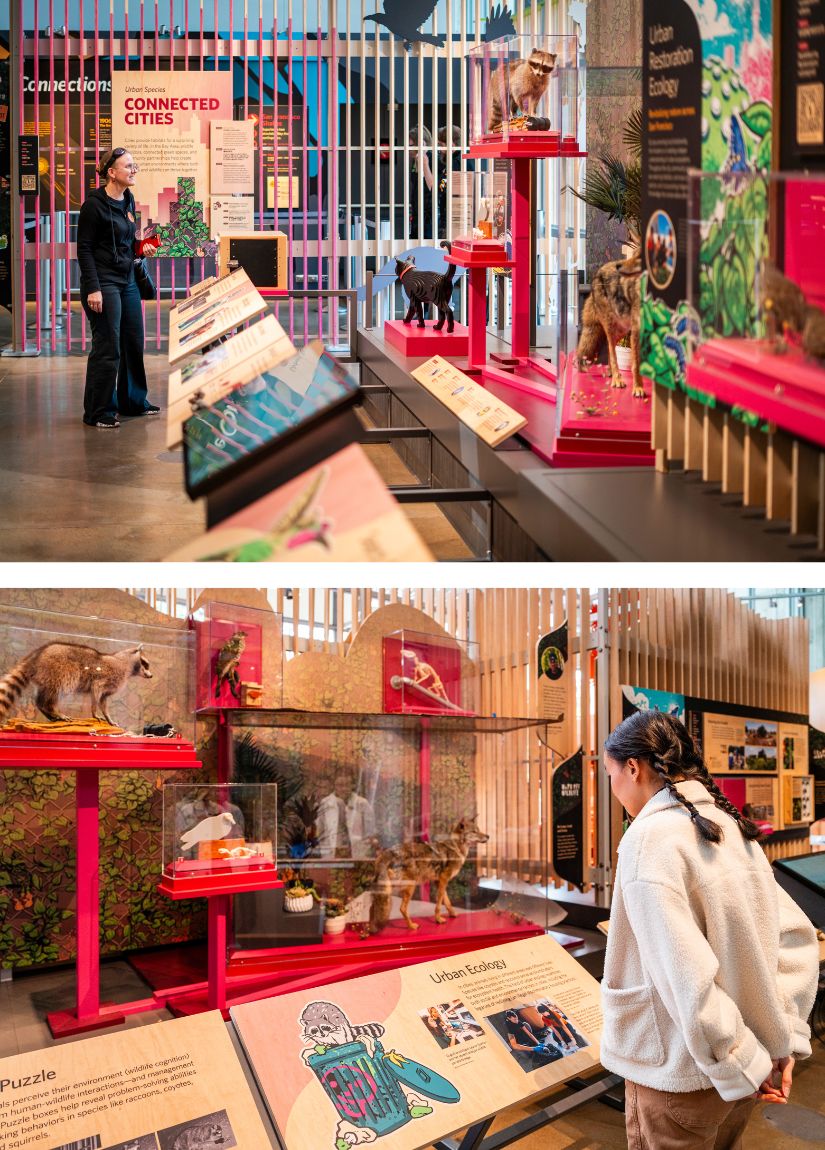
Photos by Gayle Laird © California Academy of Sciences
Research from the lab of Christopher Schell, an assistant professor in the Department of Environmental Science, Policy, and Management (ESPM), is featured in a new permanent exhibition at the California Academy of Sciences in San Francisco.
The exhibit, “California: State of Nature,” opened to the public on May 24 and offers museum patrons the opportunity to explore the connections between species, places, and people in four distinct ecosystems: forests, coasts, deserts, and cities. Within the “Urban Connections” section, videos featuring Schell and postdoctoral researchers Lauren Stanton and Christine Wilkinson, PhD ’22 ESPM, provide an overview of the field and the methods they use to conduct their research.
Schell, an urban ecologist who studies the social-ecological factors affecting wildlife and people in cities, has conducted landmark research that has revealed the interconnectedness of urban development, human-wildlife interactions, the biodiversity crisis, and environmental justice to emphasize that the collective roots of these issues lie in environmental racism. In 2022, Schell was named a California Academy of Sciences Fellow and appointed to the organization’s board of trustees.
A panel in the exhibit quotes Schell as saying, “Urban ecology intentionally acknowledges that our health, societies, cultures, and institutions are interwoven with our shared environment. If we hope to solve the complex environmental and societal crises before us, we must start by restoring our relationships with nature and each other.”
Exhibit guests have the opportunity to learn how researchers use camera traps to better understand animal behavior and distribution. Stanton, who studies how animals use their sensory systems to perceive their environment, often pairs cameras with a puzzle that provides a food reward when solved. Her cameras have captured raccoons solving puzzles for cat treats, an activity that skunks and opossums often struggle with. These findings can better inform management strategies and improve human-wildlife interactions.
Visitors can also explore human and wildlife coexistence, conflicts, and opportunities by learning about urban coyotes in San Francisco. Research by UC Davis PhD student Tali Caspi and Wilkinson, a carnivore ecologist who studies coyotes and other urban wildlife, offer vital insights into the species’ history and future in urban environments. They combine data from GPS collars data with other observations—such as the timing of their pupping seasons, distribution of their dens, and diet—to determine how humans can more safely coexist with the city’s more than 100 urban coyotes.
Learn more about the “California: State of Nature” at the California Academy of Sciences website, and watch an overview of urban ecology in the video below. The exhibit is open from 9:30 a.m. to 5 p.m. Monday through Saturday, and 11 a.m. to 5 p.m. on Sunday.
